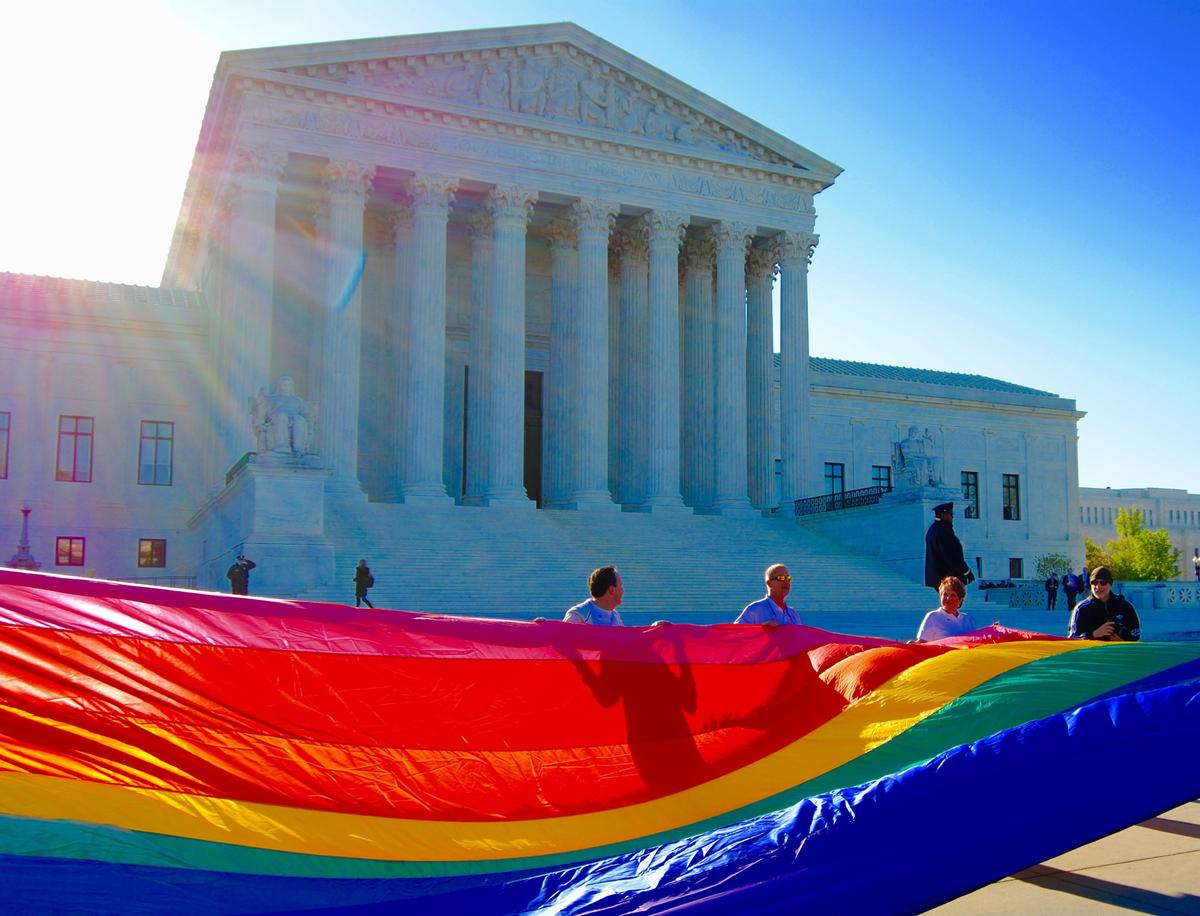The case centers on a Colorado law that makes it illegal for licensed mental health professionals to try to change a young person’s sexual orientation or gender identity. The law was enacted in 2019 after years of testimony from survivors, medical associations, and parents who said conversion therapy caused deep psychological harm.
Twenty-two other states and the District of Columbia have similar bans.
The plaintiff, Kaley Chiles, is a Christian counselor who claims that Colorado’s law violates her First Amendment rights. She argues that the state has no right to restrict what she says in a private counseling session.
“What I say to my clients is speech, not conduct,” her attorney told the justices. “If the government can dictate which conversations are allowed in therapy, it can dictate which ideas are allowed anywhere.”
Chiles’ legal team is supported by conservative religious and free-speech groups that have long sought to roll back state bans on conversion therapy.
Colorado’s solicitor general defended the law as a narrow regulation of professional conduct, not censorship. She argued that the ban targets harmful and discredited treatment, not religious or moral conversations.
“Unlike laypersons, licensed professionals are bound by the standards of their field,” she said. “The state has a duty to protect minors from practices that have been universally condemned by every major medical and psychological association in the United States."
Several justices pressed the lawyers on whether conversion therapy should be viewed as speech or as medical conduct.
Justice Samuel Alito questioned the state’s position sharply.
“It looks like blatant viewpoint discrimination,” he said. “You can tell a client to accept same-sex attraction, but you cannot tell a client that they should try to resist it?”
He also asked whether medical consensus can sometimes “be overtaken by ideology,” hinting at skepticism about relying on the opinions of professional associations.
Justice Clarence Thomas joined in, noting that bans like Colorado’s might amount to “compelled silence” for religiously motivated counselors.
Other justices appeared more cautious.
Justice Sonia Sotomayor pointed out that the law has not been enforced once in its six-year history.
“Why are we here if no one has ever been prosecuted or even threatened with prosecution?” she asked, questioning whether Chiles had standing to bring the case at all.
Justice Ketanji Brown Jackson focused on the question of professional responsibility.
“I’m just trying to understand how the First Amendment protects a therapist who provides therapy that is outside the standard of care,” she said.
Justice Elena Kagan added that states have always been allowed to regulate professional treatment, including medical advice, when public health is at risk.
The justices’ questions revealed a deep divide about where to draw the line between protected speech and professional regulation. Supporters of the law argue that conversion therapy is not speech but a harmful practice akin to prescribing a dangerous drug. Critics of the law say that talk therapy is nothing but speech and that the government should not punish people for the words they use in counseling sessions.
Behind the legal arguments are the lived experiences of countless LGBTQ people. Conversion therapy has been widely discredited by medical experts as ineffective and dangerous. Studies show that it can lead to depression, anxiety, self-hatred, and suicidal thoughts, especially among young people.
The American Psychological Association, the American Psychiatric Association, and the American Academy of Pediatrics have all warned that attempting to change a person’s sexual orientation or gender identity can cause lasting harm. LGBTQ advocates say that allowing such practices to return would endanger vulnerable youth who are already at higher risk of self-harm.
“Every major medical and mental health organization agrees that conversion therapy is pseudoscience,” said Sam Brinton, a survivor and advocate who has testified before Congress on the issue. “What happens in these sessions is not healing—it’s coercion.”
Religious liberty groups counter that the bans go too far by preventing clients from seeking counseling that aligns with their beliefs. They argue that the government is discriminating against religious viewpoints under the guise of protecting public health.
If the Supreme Court rules in Chiles’ favor, the ripple effects could reach far beyond Colorado. Similar bans in states like California, Illinois, and New York could be struck down, and local ordinances protecting LGBTQ youth might be invalidated.
Free-speech advocates say such a decision could set a precedent limiting how states regulate professional advice in other fields, from medicine to law.
On the other hand, if the Court upholds Colorado’s law, it would strengthen the power of states to restrict harmful medical or therapeutic practices even when they involve spoken words.
A ruling is expected by June 2026.
For many LGBTQ people and their allies, the case represents a crossroads between the freedom to speak and the freedom to live safely and authentically. In the words of one advocate outside the courthouse, “The right to free speech should never be used as a weapon to erase who we are.”

